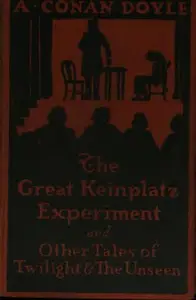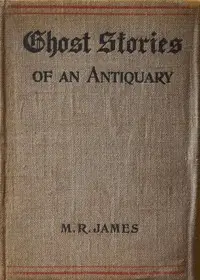"Stories of Intellect" by Rebecca Harding Davis et al. is a compilation of late 19th-century stories, each exploring the intricate relationship between intellect, logic, and the supernatural. The anthology presents characters confronting these weighty ideas, offering a window into their thoughts and lives. Composed by famous writers, these tales stir varied emotions and push readers to contemplate the human condition within the realms of knowledge and enigma. Beginning with E. Bulwer Lytton's "The House and the Brain", the story tells of a couple in search of an apartment who discover an allegedly haunted house in London. Spurred by stories of its dark past, the main character embarks on a journey to uncover the truth, meeting a peculiar old woman who casually acknowledges the house’s ghostly reputation and the terrifying ordeals of those who lived there before. As the narrative progresses, suspense and intrigue build as the protagonist and his servant ready themselves for a night in the haunted house, promising a thrilling voyage into the unknown and unsettling sides of human consciousness.

Stories of Intellect
By Rebecca Harding Davis
In a chilling exploration of the unknown, a curious investigator dares to spend a night in a haunted house, defying ghostly tales and facing the darkness of intellect.
Summary
About the AuthorRebecca Blaine Harding Davis was an American author and journalist. She was a pioneer of literary realism in American literature. She graduated valedictorian from Washington Female Seminary in Pennsylvania. Her most important literary work is the short story "Life in the Iron-Mills," published in the April 1861 edition of The Atlantic Monthly. Throughout her lifetime, Davis sought to effect social change for African Americans, women, Native Americans, immigrants, and the working class, by intentionally writing about the plight of these marginalized groups in the 19th century.
Rebecca Blaine Harding Davis was an American author and journalist. She was a pioneer of literary realism in American literature. She graduated valedictorian from Washington Female Seminary in Pennsylvania. Her most important literary work is the short story "Life in the Iron-Mills," published in the April 1861 edition of The Atlantic Monthly. Throughout her lifetime, Davis sought to effect social change for African Americans, women, Native Americans, immigrants, and the working class, by intentionally writing about the plight of these marginalized groups in the 19th century.











